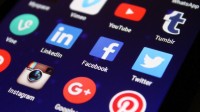Twitter and Facebook Uncover Deceptive Global Campaigns
February 4, 2019
In the wake of Russia using social media to spread misinformation, Bangladesh, Venezuela and Iran are following suit, the first two in order to assert government talking points and the latter to spread fake news on everything from the war in Syria to September 11 conspiracy theories. These social media disinformation campaigns come at a time that several countries, including India and the Ukraine, are preparing for national elections. Disinformation reportedly played a role in the recent contentious election in Brazil. Facebook and Twitter indicate they are investigating such misuse of their platforms and taking down offending accounts.
The New York Times reports that Carlos Monje, Jr., Twitter director of public policy in the U.S. and Canada, noted that, “elections are coming up around the world, and our goal is to protect their integrity to the best of our ability and to take the learnings from each with us.” Twitter also reported that there’s been a spike in “Americans targeting fellow Americans with false or misleading information,” including the U.S. midterm elections when “most of the false content on its site came from within the country itself.”

The “misleading messages” during the U.S. midterm elections “focused on voter suppression, with the company deleting almost 6,000 tweets that included incorrect dates for the election or that falsely claimed that Immigration and Customs Enforcement was patrolling polling stations.” Twitter said that users posted 99 million tweets about the elections, “more than the social media company has observed during any prior election,” added Monje.
Between October and December 2018, Twitter removed 418 Russia-linked accounts, which “mimicked the behavior of the 3,843 [previous] accounts that were run by [Russia’s Internet Research Agency].” Twitter head of site integrity Yoel Roth said, “the company could not prove that the new accounts it discovered were run by the IRA.”
Facebook collaborated with Twitter on the investigation; “the most successful and ambitious of the disinformation efforts” was an Iranian campaign that “sought to sway public discourse in countries across the Middle East, Europe and Asia.” Facebook deleted 783 Iran-linked pages, groups and accounts and Twitter removed 2,617 such accounts. The Atlantic Council’s DFR [Digital Forensic Research] Lab, which studies disinformation, said that Iran’s efforts on Facebook “promoted or amplified views in line with Iranian government’s international stances.”
Facebook and Twitter’s announcement about the results of their investigation was “part of an effort to increase transparency around the fake accounts the companies find on their platforms.” Twitter revealed it “challenges 8 million to 10 million suspicious accounts every week.”

No Comments Yet
You can be the first to comment!
Sorry, comments for this entry are closed at this time.